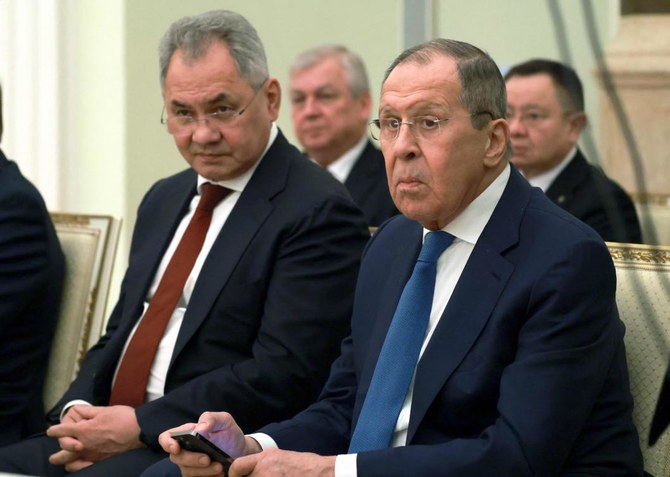ANKARA: A meeting of the deputy foreign ministers of Russia, Turkiye, Iran and Syria, scheduled for this week, has been postponed to an unspecified date, a source from the Turkish foreign ministry said on Thursday.
Turkish Foreign Minister Mevlut Cavusoglu said last week that the deputy foreign ministers of the four countries would meet this week in Moscow, ahead of planned talks between foreign ministers at a later date, aimed at resolving the crisis in Syria.
The deputy foreign ministers’ meeting had been scheduled for March 15-16, state-run Anadolu Agency reported on Monday.
But the meeting was postponed for “technical reasons,” a Turkish foreign ministry source said, without elaborating.
In a sign of potential rapprochement between Ankara and Damascus, Syrian and Turkish defense ministers held landmark talks in Moscow in December, alongside their Russian counterpart, marking the highest-level encounter since the start of the Syrian war more than a decade ago.
In January, Cavusoglu said he could meet his Syrian counterpart in February to discuss normalization between the two neighbors.
However, Syrian President Bashar Assad has said he will only meet President Recep Tayyip Erdogan if Turkiye withdraws troops from northern Syria, according to a Russian media interview published on Thursday.
His comments came one day after he met Russian President Vladimir Putin, who is seeking to repair ties between Erdogan and Assad severed after the 2011 Syrian war.
“(Any meeting) is linked to our reaching the point when Turkiye is ready — fully and without any uncertainty — for a complete withdrawal from Syrian territory,” Assad told Russia’s state-run RIA-Novosti news agency.
The Syrian leader, who arrived in Moscow on Tuesday, demanded that Turkiye end its “support for terrorism” alongside a withdrawal, a reference to rebel groups that control regions of northern Syria and oppose Damascus.
“This is the only way in which my meeting with Erdogan could take place,” Assad was cited as saying.
“What significance would any kind of meeting have — and why organize it — if it doesn’t lead to a conclusion of the war in Syria?” he added.
Erdogan and Assad had amicable relations in the 2000s after years of tensions between their countries following the breakup of the Ottoman Empire.
But Syria’s civil war, which has left some 500,000 people dead and displaced millions, strained relations between Damascus and Ankara, which has long supported rebel groups opposed to Assad.
NATO member Turkiye has been a major backer of the political and armed opposition to Syrian President Bashar Assad during the 12-year conflict in Syria, and has sent its own troops into swathes of the country’s north.
Moscow is Assad’s main ally and Russia encouraged a reconciliation with Ankara.














